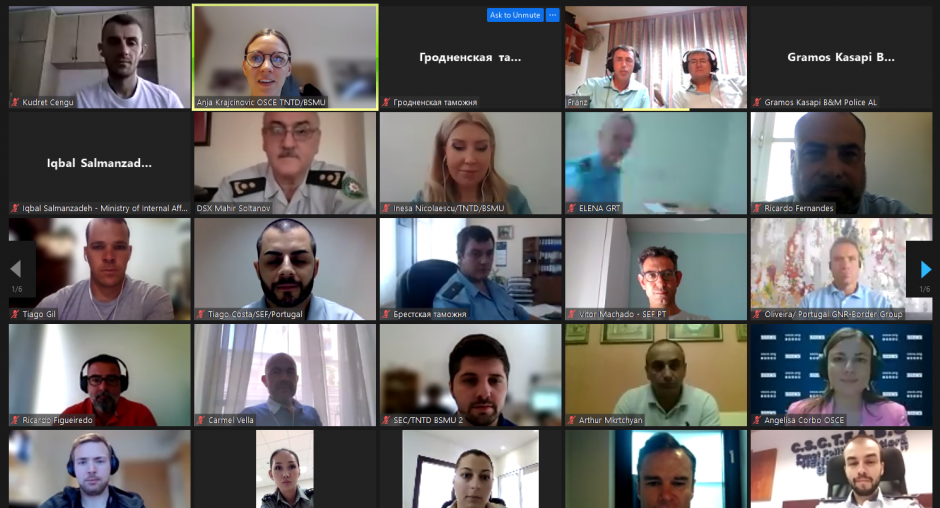OSCE TNTD Border Security and Management Unit concludes two-day online training on identifying impostors at border crossing points

The Border Security and Management Unit of the OSCE Transnational Threats Department organized a third online training on 19 and 20 July. The workshop, titled “Identification of Impostors at Border Crossing Points”, was held for the members of the OSCE Border Security and Management National Focal Points (NFP) Network and selected representatives of border and customs services. The training was conducted by experts from the Austrian Federal Ministry of Interior and brought together 243 participants (71 women, 172 men) from 32 OSCE participating States.
“It is crucial for border security officials to keep their skillsets up to date, as challenges in travel document security are constantly developing. Phenomena such as morphing, impostors, and now counterfeit Schengen visas are becoming more and more frequent. Therefore, today we emphasize the need to constantly keep acquiring new skills and knowledge, in order to prevent irregular movements in an efficient way”, said Dennis Cosgrove, Head of the OSCE Border Security and Management Unit, in his opening remarks.
Impostors represent one of the main challenges in the field of identity fraud. Despite improved travel document security features, stricter controls on documents’ issuance and strengthened security checks at cross-border checkpoints, identity fraud is on the rise. Criminals have been constantly diversifying forging methods as they look for ways to assume false identities without detection.
This online training enhanced the abilities of front-line officers to identify potential criminals travelling under false identities. It included a strong interactive component, including memory tests, exercises on facial appearance and comparison, lectures and practical modules on anatomical features, and examination techniques of facial components. Additionally, the training dedicated a specific session on Schengen Visa Security, Schengen Visa features, and related forgery methods.
Real examples and cases encountered by participants while performing their duties were presented and discussed. This course is part of a series of activities on the detection of forged travel documents and impostors organized by the OSCE Border Security and Management Unit in different countries since 2015.
